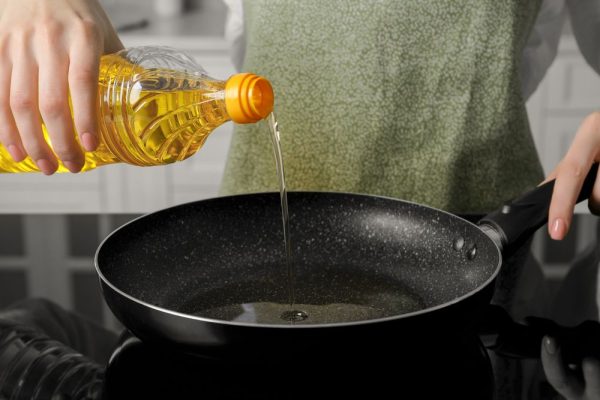
8 Most Common Myths About Cooking Oil Disposal Debunked by GreasePros Recycling

In a world where sustainability and environmental consciousness are at the forefront of our minds, the proper disposal of cooking oil has become an increasingly important topic. There are numerous misconceptions surrounding the recycling and disposal of cooking oils, and it’s essential to distinguish between myths and facts.
From the belief that cooking oil cannot be recycled to concerns about its impact on the environment, this article aims to debunk common misconceptions and shed light on the reality of cooking oil disposal.
Key Takeaways:
- Used cooking oil can be recycled and turned into biodiesel, reducing its environmental impact.
- Pouring grease down the sink can cause clogs and damage to plumbing, while proper disposal can benefit the environment and your community.
- Investing in eco-friendly solutions, such as the Grease Hero, can make a positive impact on the environment and your home.
Myths and Facts About Cooking Oil Disposal
Cooking oil disposal is a topic surrounded by various myths and facts that influence people’s decisions when it comes to handling and recycling this essential kitchen ingredient. Understanding the truths and misconceptions about cooking oil disposal is crucial for promoting environmental sustainability and responsible waste management.
Improper disposal of cooking oil can lead to clogged drains and sewer backups, posing a significant threat to the environment. Many people believe that it’s okay to pour used cooking oil down the sink, contributing to this misconception. In reality, this can cause substantial environmental damage and incur costly repairs. Proper disposal, such as recycling the oil into renewable fuels or using it for composting, is vital for minimizing these adverse effects.
Myth: Cooking Oil Recycling Is Impossible
Fact: One prevalent myth about cooking oil is the misconception that it cannot be recycled, leading to the assumption that it is a non-renewable and environmentally harmful substance. Fact: You are correct that cooking oil can be recycled. Innovative companies and programs have found ways to convert used cooking oil into sustainable renewable fuels like biodiesel. Recycling cooking oil not only helps reduce environmental impact but also contributes to the production of cleaner energy sources.
Myth: Too Difficult to Recycle
FACT: Too difficult to recycle Fact: Recycling cooking oil can be relatively simple and practical with the right methods and resources. Many communities have established collection programs and drop-off locations for used cooking oil to make recycling easy and efficient. Proper storage and disposal practices, such as using sealable containers, can also facilitate the recycling process. Education and awareness about these options can help dispel the myth that recycling cooking oil is too difficult or impractical.
Myth: You can Safely Dispose of Cooking Oil Down the Drain.
Fact: This is a common misconception, but it’s not true. Pouring cooking oil down the drain can lead to clogs and blockages in your plumbing over time. As the oil cools and solidifies, it can adhere to the inside of the pipes, causing backups and costly repairs. Instead, you should never pour cooking oil or grease down the drain.
Myth: Mixing Hot Water with Cooking Oil Before Disposing of It Down the Drain Will Prevent Clogs.
Fact: Mixing hot water with cooking oil may temporarily emulsify the oil and make it appear like it’s safe to pour down the drain, but it’s still not a recommended method. Eventually, the oil will cool and solidify inside the pipes, contributing to clogs. It’s best to avoid this practice altogether.

Myth: You can Dispose of Cooking Oil in Your Regular Trash.
Fact: While it’s possible to dispose of insignificant amounts of cooking oil in your regular trash, it’s not the most environmentally friendly option. The oil can leak from the trash bag and contaminate the landfill. If you do choose to dispose of cooking oil in the trash, it’s better to use a sealable container to prevent leaks.
Myth: Recycling Centers Accept Cooking oil.
Fact: Not all recycling centers accept cooking oil, so you should check with your local recycling program to see if they have specific guidelines for oil disposal. Some municipalities have collection events or drop-off locations for used cooking oil, and it can often be recycled into biodiesel or other products.
Myth: Reusing cooking oil multiple times is safe and economical.
Fact: While it’s possible to reuse cooking oil a few times for frying, it’s not recommended to do so indefinitely. Repeated use can break down the oil, leading to the formation of harmful compounds and affecting the flavor of your food. It’s best to follow the manufacturer’s guidelines and use fresh oil for frying when needed.
Myth: You can dispose of cooking oil by burying it in your backyard.
Fact: Burying cooking oil in your backyard is not a responsible way to dispose of it. The oil can still seep into the soil and potentially harm the environment. It’s better to use one of the recommended methods for disposal, such as recycling or taking it to a designated collection site.
Looking for Restaurant Oil Recycling Near Me?
Are you haunted by the thought of your restaurant’s used cooking oil going to waste, damaging the environment, and missing out on a chance to support your local community?
Put an end to those eco-nightmares and tap into the power of sustainable change! Join forces with GreasePros Recycling where we turn used cooking oil disposal into an environmental superhero’s mission.
Ready to take action and be part of the solution? Connect with us today! Your restaurant oil recycling awaits, just one click away. Let’s make a real impact together.

Frequently Asked Questions
What are some common myths about cooking oil disposal?
One common myth is that it’s okay to pour cooking oil down the drain. This is not true, as it can lead to clogged pipes and costly plumbing repairs.
Another myth is that it’s safe to throw cooking oil in the garbage. This is also false, as the oil can leak out and contaminate the environment.
Is it true that all types of cooking oil can be disposed of in the same way?
No, this is a common misconception. Different types of cooking oil require different methods of disposal, as some can be recycled and others cannot.
Are there any safe ways to dispose of cooking oil?
Yes, there are several safe and environmentally-friendly ways to dispose of cooking oil. This includes recycling, composting, and using absorbent materials to solidify the oil.
What are the benefits of recycling cooking oil?
Recycling cooking oil has several benefits, including reducing pollution and protecting the environment. It can also be turned into biodiesel fuel, which is a renewable energy source.
Is it true that cooking oil can be reused multiple times?
It depends on the type of oil and how it was used. Some oils, such as vegetable and canola oil, can be reused several times for cooking. However, it’s important to safely store and filter the oil to ensure food safety.
What should I do if I have a large amount of cooking oil to dispose of?
If you have a large amount of cooking oil, it’s best to contact your local waste management company for guidance. They may have specific instructions for disposing of large quantities of oil, such as drop-off locations or scheduled pick-up services.





